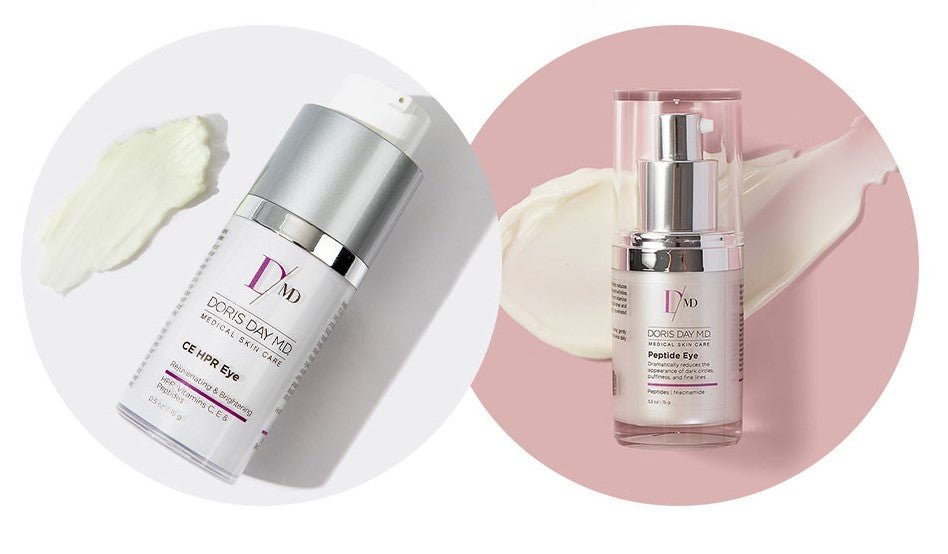Years ago, a woman came into my practice with skin so reactive, she joked that looking at a new product would make her break out. She’d tried every “soothing” cream on the shelf—some made her redder, others did nothing. When we finally calmed her skin, it wasn’t with steroids or antihistamines, but with a powerful, gentle botanical: bisabolol.
You may not know the name, but if your skin has ever felt instantly calmer, less red, or subtly more radiant after applying your favorite product, there's a good chance bisabolol was quietly doing its work behind the scenes. It’s one of my favorite under-the-radar actives—so much so that I’ve made it a key ingredient in several products in my line, including Dew Drop Ultra, Revitalizing Vitamin C Cream, and Facial Silk SPF.
What Is Bisabolol?
Bisabolol (pronounced biz-A-bo-lol) is a natural compound most commonly extracted from chamomile—yes, the same flower we steep into tea to help us sleep. Its scientific name is α-bisabolol, and it’s what gives chamomile its signature soothing, anti-inflammatory power.
But here’s the twist: while chamomile is calming in your cup, bisabolol is a game-changer on your skin.
It’s been used for centuries in traditional medicine to reduce inflammation and heal wounds, but now we have the science to understand why: bisabolol is a natural sesquiterpene alcohol with potent anti-irritant, antimicrobial, and antioxidant properties. In other words, it helps reduce redness, defends against environmental stressors, and supports the skin’s own healing processes—all without triggering sensitivity.
Why I Love Bisabolol
-
It’s powerful, but gentle.
Sensitive skin needs results, not just avoidance. Bisabolol works quietly to ease redness and irritation, even in skin recovering from lasers, peels, or retinoids.
-
It enhances other ingredients.
Bisabolol increases skin permeability, which means it can help other actives like vitamin C or hyaluronic acid absorb more efficiently and work better.
-
It fights environmental damage.
With antioxidant properties similar to vitamin E, bisabolol scavenges free radicals that contribute to premature aging. Think of it as insurance for your collagen.
-
It supports even tone and glow.
Studies suggest bisabolol can help inhibit melanogenesis, the process behind dark spots and hyperpigmentation, making it a smart addition to brightening regimens.
Where You’ll Find It in My Skincare Line
-
Dew Drop Ultra:
This ultra-light, hydrating essence is powered by bisabolol alongside calming botanicals and antioxidants. It’s perfect as a first layer post-cleansing—especially after treatments or exfoliation—to instantly comfort and prime the skin for what’s next.
-
Revitalizing Vitamin C Cream:
Vitamin C is a must for collagen support and glow, but it can sometimes be irritating. That’s why I paired it with bisabolol in this cream: to enhance delivery while buffering sensitivity. The result? Brighter skin with less risk of inflammation or flaking.
-
Facial Silk SPF:
Sun protection is non-negotiable, but it shouldn’t feel heavy or harsh. With bisabolol in the mix, this elegant mineral-based SPF soothes while it shields, making it ideal for daily use—even on skin prone to redness or rosacea.
Bottom Line: An Unsung Hero Worth Spotlighting
In the world of skincare, some ingredients shout for attention—retinol, peptides, acids. But bisabolol is the quiet one doing the work behind the scenes, helping to make those actives more effective and more tolerable, while lending a calm, even tone to skin that’s had enough of the drama.
If you’ve been struggling with sensitivity, dullness, or post-treatment irritation—or you simply want to treat your skin to something that loves it back—look for this powerful little molecule.
🌼 Your skin will thank you for it.






